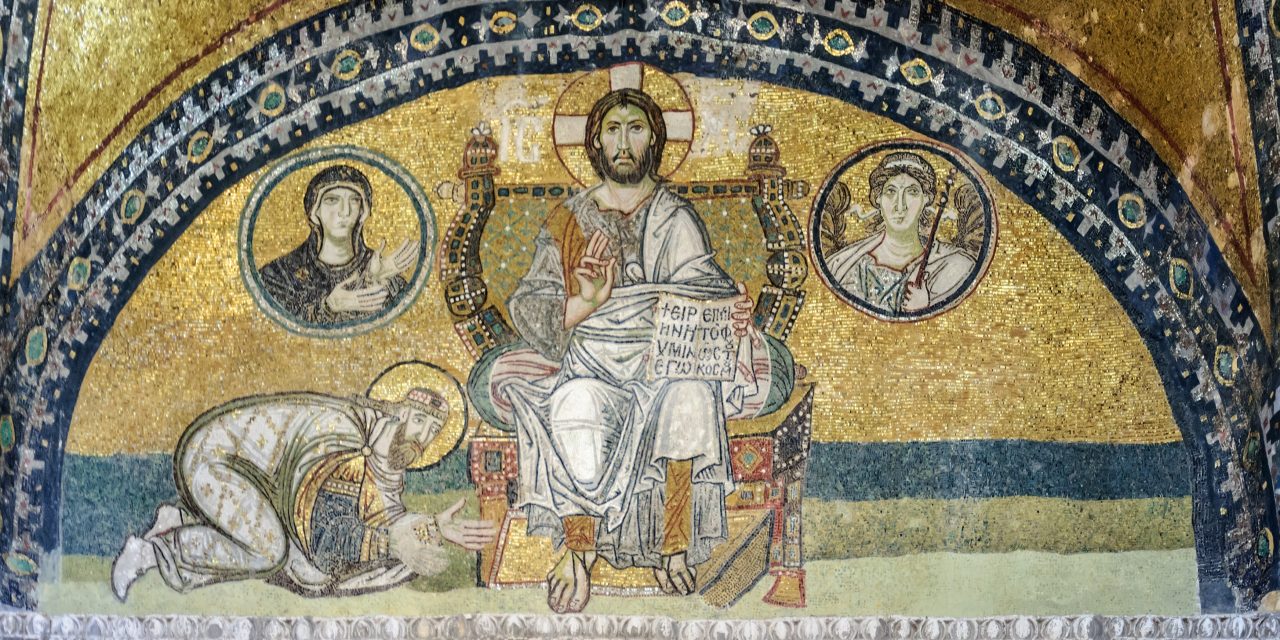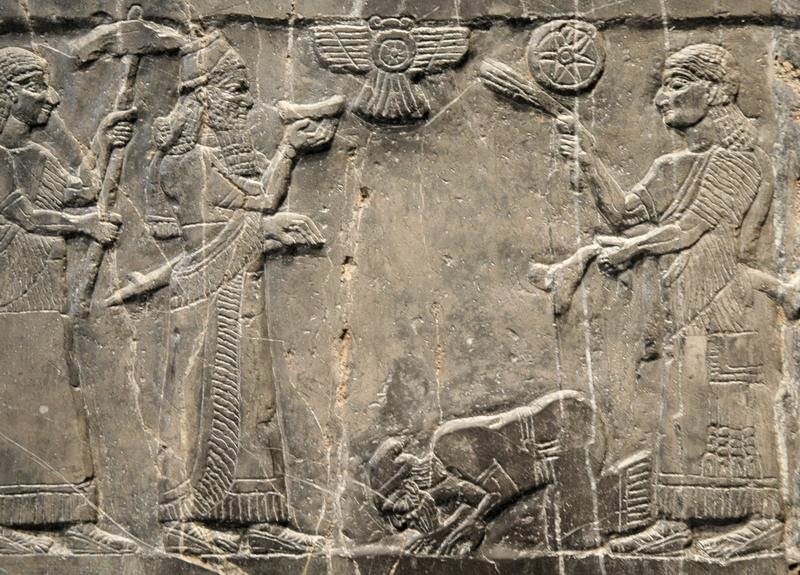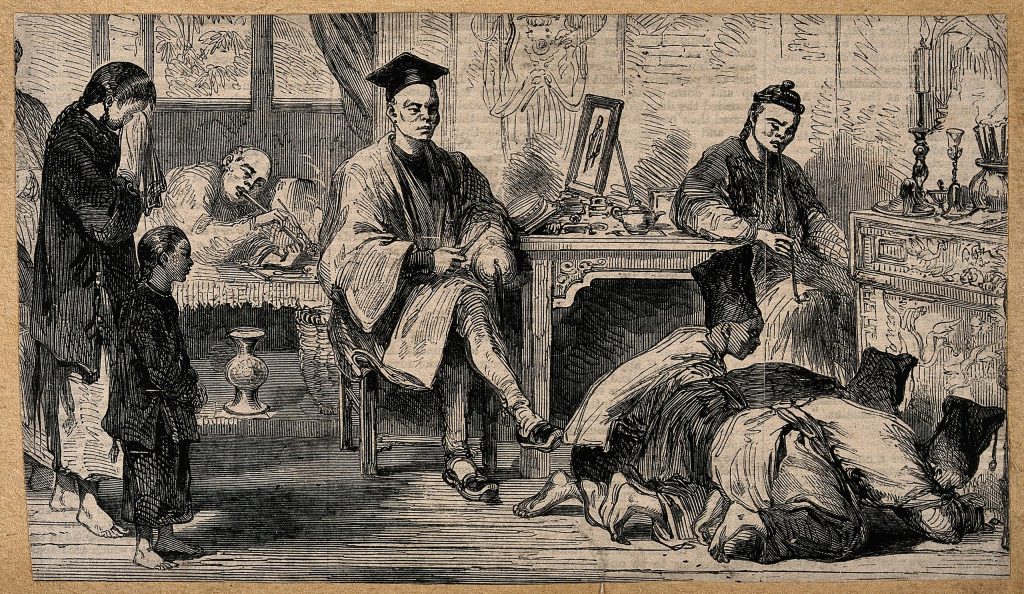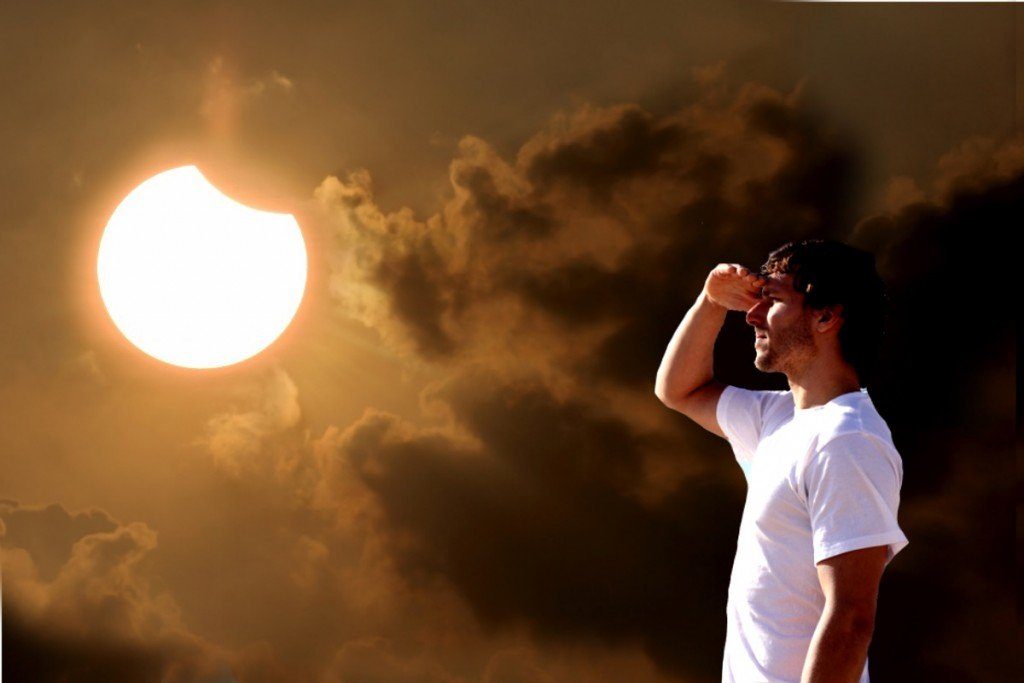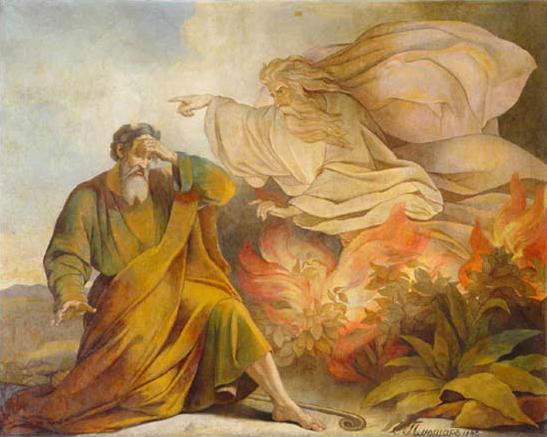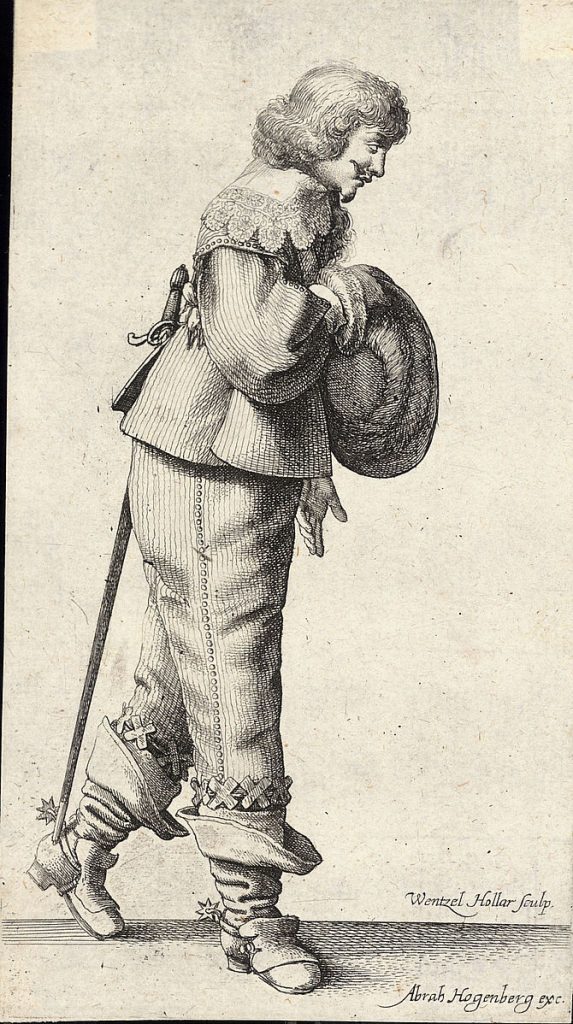Why do we bow to royalty, or salute to authority? I’m sure it all goes back to God and Angels and Glorified Beings — fall on the ground — proskynesis –, or the light will blind you. I suppose the royal person or officer should actually glow with brightness. And that brightness in itself would cause you to cover your eyes as if saluting — or bow down to keep the brightness from hurting your eyes. Or fall to the ground. It was actually an involuntary response to the glory and power emanating from a glorified being. The custom has evolved into a voluntary gesture; sadly, the glory is gone.
In the Vassal – King Tradition, the King protected all who kept his laws. It was a divine calling, divine protection, beyond what mere mortals could provide. It was based on the true teaching of a Savior as King and Protector. A Savior-King has glory and a glorified body, including a brightness beyond what our mortal eyes can behold. And thus, we have a history of stories of men and women falling to the ground before glorified beings. The proskynesis, which has evolved into the bow or the salute, was and is a real thing.
Hugh Nibley explained the history of proskynesis and bowing down:
You notice in the Book of Mormon they fall to earth quite often when they are overpowered; there’s this spontaneous falling to earth. There are formal and traditional responses to certain stress, and they differ very greatly.
It’s quite normal to shield your eyes with your hand when you are faced with the brightness of the sun. I hate to stand in a group photo and squint at the camera because the cameraman wants the sun at his back—awful photos. When the sun is bright, we bring our hand to our forehead like a little visor — it is the salute.
Above all we don’t collapse and fall down, but that’s a common Oriental gesture. That’s the way you salute. That’s the way you recognize things. Five times a day you put your little rug on the ground, and you fall down on your face. This is called proskynēsis. It means “falling right down and kissing the ground.” The proskynēsis is a very common way of demonstration in the ancient world. When the emperor came, there was a proskynēsi. When the pope passed, everybody fell down flat. You’re supposed to be overpowered; this is the idea. With the Romans you were supposed to blind yourself like this. The dazzling light of the king is so great that you put your hand in front of your face to protect your eyes. That’s the proskynēsis and the salute. (Hugh Nibley Teachings of the Book of Mormon, Lecture 25)
The Proskynesis
Proskynesis is a Greek word (προσκύνησις), formed by “pros” (to, towards) and “kyneo” (kiss, kissing). Thus it is “Kissing towards,” as noted by the 5th Century Greek researcher Herodotus of Halicarnassus. He writes:
When the Persians meet one another in the roads, you can see whether those who meet are of equal rank. For instead of greeting by words, they kiss each other on the mouth; but if one of them is inferior to the other, they kiss one another on the cheeks, and if one is of much less noble rank than the other, he falls down before him and worships him. (ref)
This was probably confusing to the Greeks, who reserved this type of recognition only for their Gods whom they worshipped. The Greeks must have concluded that Persians saw their kings as gods. When Alexander the Great conquered Persia, in 327 BC, he wanted to keep that ritual for his subjects.
Another form of proskynesis is Kowtow — the Chinese word for showing deep respect by prostration or bowing down all the way to the ground. This was the highest sign of reverence to an Emperor.
The Salute
Today, the salute is a gesture of respect. No glorious being prompts you to raise your arm and cover your eyes. In fact, the salute has migrated to the right of the eye — many uniforms have hats that provide shade to the eyes. No one knows how the salute got started. But I would say it goes back to shading your eyes from true glorious beings. Historians have other ideas, of course. Some say it dates to the Medieval Period when knights raised their helmet visor to show their face as a sign of friendship, not an enemy kind-of-thing. Or others say you raised your right hand to show you had no weapon in it. All great ideas that may have some validity, but I would guess that it goes back further — the act of shading your eyes from the brightness of a glorious angel being.
The Bow
The bow is a simplified version of the “falling” or proskynesis. But it would certainly have fit the pattern of bowing because the light of a glorified being was too much for mortal eyes. Now, the bow has become much like the salute — a salutation gesture to someone of higher rank or authority. In British royalty, men bow and women curtsey. Both require a lowering yourself before a queen or king. You see this today with the Queen of England. Of course, this custom, along with the coronation of the Queen or King, evolved from the true principle of the Vassal-King system of protection. I guess that’s why we watch the British Royalty, as it is one of the few that have survived (though without the glory.)
Further Reading:
https://www.wikihow.com/Formally-Address-British-Royalty-and-Aristocracy-in-Person
https://en.wikipedia.org/wiki/Bowing
https://scholarsarchive.byu.edu/cgi/viewcontent.cgi?article=1045&context=studiaantiqua
https://knowhy.bookofmormoncentral.org/content/why-did-the-people-fall-down-at-the-feet-of-jesus
https://en.wikipedia.org/wiki/Proskynesis

